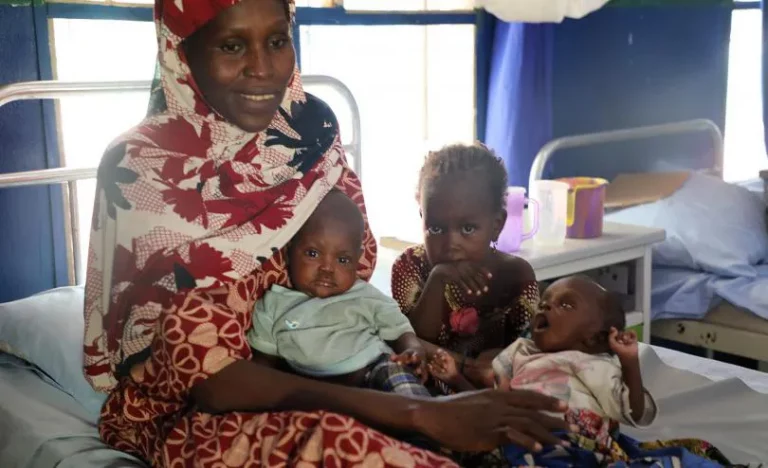This blog was originally published by Save the Children.
Displacement
Binta was displaced by the insurgency in Borno State of Nigeria, where her community was attacked and she was unable to sustain the life she had built. Because of the insurgency, access to medicines have been disrupted and other basic needs such as clean water, roads to market and even her mental health and that of other community members have been affected.
When Binta’s sister died, the newborn baby she left behind had little chance of survival or adequate nourishment. His grandmother was saddled with nursing Mohammed. She required assistance to care for him and she took him to the only place in their wider community which she knew could offer help- our [Save the Children’s] Stabilization Center (SC) in Molai, Borno State.
The Stabilization Center
According to UNICEF, breastfeeding is the best way to ensure the optimum cognitive and physical development of infants. Women who are breastfeeding and malnourished infants receive support to do this [breastfeed] at the SC. The centers provide treatment and support for severely malnourished children. Because of the vulnerability of babies under six months, most centers are unable to accept them due to the high mortality rates; the SC in Molai takes on children at this very young age, one of the few centers in Borno to do so. In 2020 alone, [the SC] cured over 90 infants (under the age of 6 months) of Severe Acute Malnutrition (SAM) and over 400 other older children up to age 5 of various complications from malnutrition.
According to Dr Nura Tukur, our Stabilization Center doctor, “The critical nature of cases at the SC leaves no room for lapses on the part of staff, as the consequences are often fatal. Therefore, it requires the presence of highly skilled, trained, experienced and committed health staff with enough capacity to provide best medical care to patients in accordance with National and global best practices”.
When Mohammed’s grandmother arrived at the SC in Molai, she intended to receive support to breastfeed him since his mother had passed away, but after 3 weeks of effort to support re-lactation, his grandmother decided she was not the best person to breastfeed the baby. Therefore, his aunt, Binta, was prepared to breastfeed Mohammed and nurture him until he was strong enough. In June 2021, Binta was admitted into the Stabilization Center in Molai, Borno State to face the challenge of breastfeeding her own newborn infant as well as her nephew, Mohammed.
Better Days Ahead
The SC provided Binta with a special therapeutic milk called D [diluted] F100, which is only administered under strict medical supervision within the center. This milk supports mothers to supplement breastmilk for infants. Binta was also provided with nutritious food and even encouraged to eat at late hours if needed. She was also supported with counselling and education on hygiene, proper positioning for breastfeeding and their [maternal and child] general health.
Mohammed’s condition significantly improved thanks to the breastmilk, therapeutic milk (DF100), improved hygiene conditions and appropriate medical treatment. After some days in the center, the infant started to gain weight and show improvement in his health.
This multi-pronged approach supported Binta to maintain a healthy and happy environment even after leaving the center. Looking with joy at Mohammed, she said “We are doing well and I am very happy with Save the Children!”
Read more about exclusive breastfeeding and feeding small and sick newborns here.
